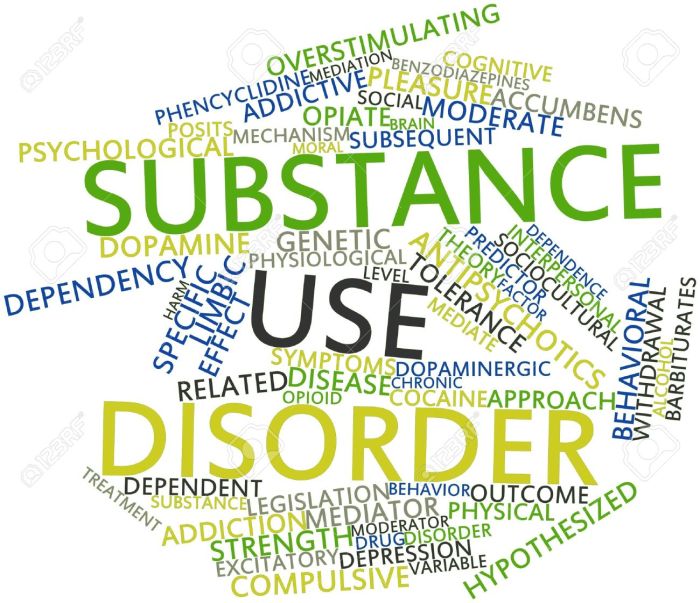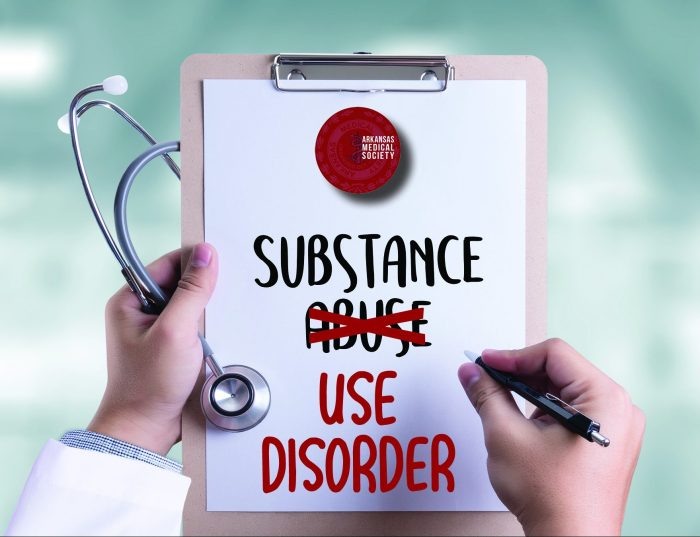What does SUD stand for in therapy? – Embark on a journey to unravel the acronym SUD in therapy, a term that holds immense significance in the realm of mental health interventions. This exploration will delve into its meaning, types, diagnosis, treatment options, and prognosis, providing a comprehensive understanding of SUD’s impact on therapeutic practices.
In therapy, SUD stands for Substance Use Disorder, a condition characterized by problematic patterns of substance use that can lead to significant impairment in various aspects of life. Understanding SUD is crucial for therapists as it guides their assessment, treatment planning, and intervention strategies.
What does SUD stand for in therapy?

Substance use disorder (SUD) is a term used in therapy to describe a pattern of problematic substance use that leads to significant distress or impairment.
What is the full form of SUD?
SUD stands for substance use disorder.
What does SUD stand for in the context of therapy?

In the context of therapy, SUD refers to a condition in which an individual experiences significant impairment or distress as a result of their substance use.
What are the different types of SUDs?

- Alcohol use disorder:This refers to problematic alcohol use that leads to significant distress or impairment.
- Cannabis use disorder:This refers to problematic cannabis use that leads to significant distress or impairment.
- Opioid use disorder:This refers to problematic opioid use that leads to significant distress or impairment.
- Cocaine use disorder:This refers to problematic cocaine use that leads to significant distress or impairment.
- Stimulant use disorder:This refers to problematic stimulant use that leads to significant distress or impairment.
- Sedative, hypnotic, or anxiolytic use disorder:This refers to problematic use of sedatives, hypnotics, or anxiolytics that leads to significant distress or impairment.
- Polysubstance use disorder:This refers to problematic use of multiple substances that leads to significant distress or impairment.
How is SUD diagnosed?
SUD is diagnosed based on a clinical evaluation that includes a review of the individual’s substance use history, physical examination, and psychological assessment.
What are the treatment options for SUD?
- Cognitive-behavioral therapy (CBT):This type of therapy helps individuals identify and change the thoughts and behaviors that contribute to their substance use.
- Motivational interviewing:This type of therapy helps individuals explore their ambivalence about change and develop the motivation to reduce or stop their substance use.
- Contingency management:This type of therapy uses rewards and consequences to reinforce positive behaviors and reduce substance use.
- Medication:Certain medications can be used to reduce cravings and withdrawal symptoms, and to help individuals maintain abstinence.
What is the prognosis for SUD?, What does SUD stand for in therapy?
The prognosis for SUD varies depending on a number of factors, including the type of substance being used, the severity of the disorder, and the individual’s motivation for change.
Last Recap
Navigating the complexities of SUD in therapy requires a multifaceted approach that encompasses diagnosis, treatment, and ongoing support. By recognizing the unique challenges posed by SUD, therapists can tailor their interventions to effectively address the underlying causes and promote lasting recovery.
Detailed FAQs
What is the difference between SUD and addiction?
While SUD and addiction are often used interchangeably, SUD is a clinical term used in therapy to describe a specific set of diagnostic criteria, whereas addiction is a broader term that encompasses the compulsive use of substances despite negative consequences.
What are the common types of SUDs?
SUDs can involve a wide range of substances, including alcohol, opioids, stimulants, and cannabis. Each type of SUD has its own unique characteristics and treatment considerations.
How is SUD diagnosed?
Diagnosis of SUD typically involves a comprehensive assessment that includes a clinical interview, review of medical history, and evaluation of current substance use patterns.